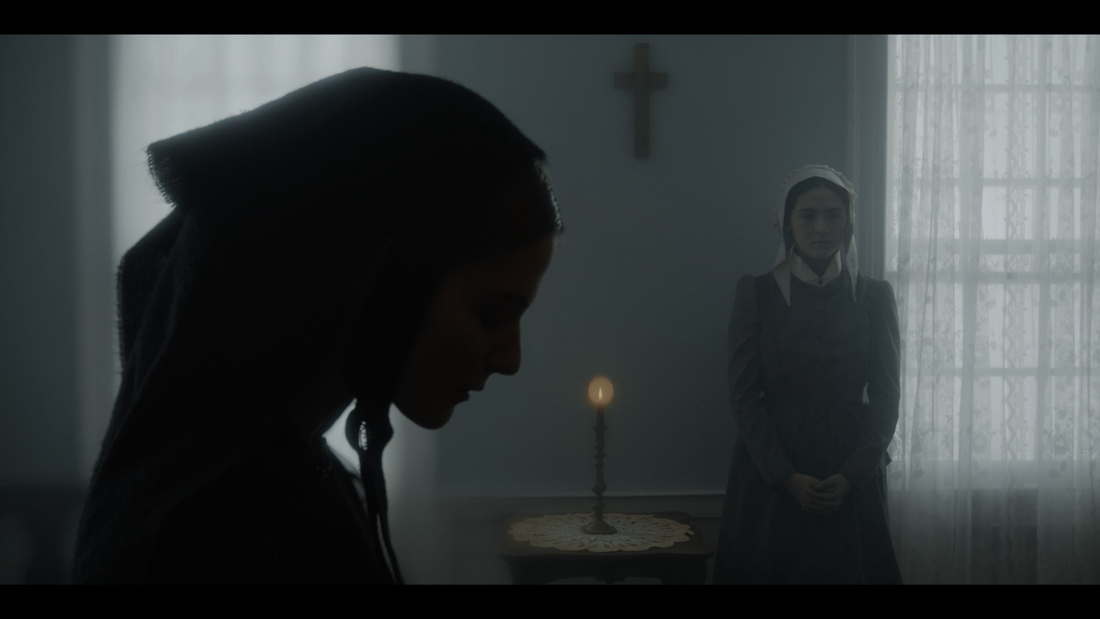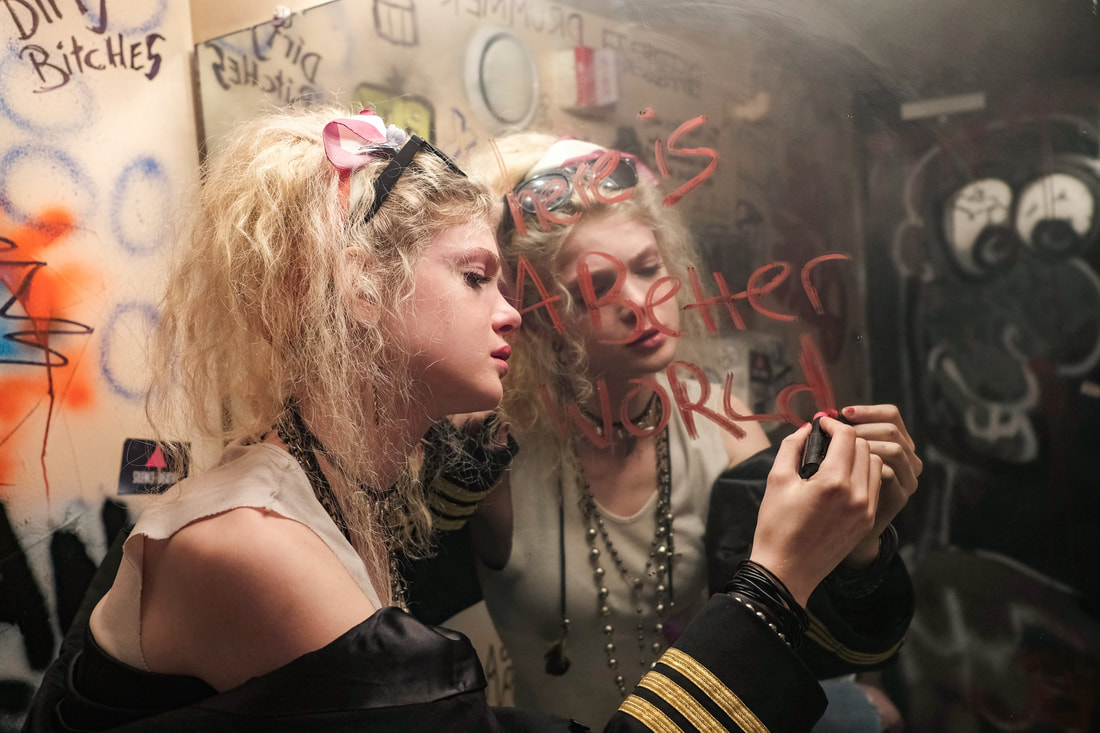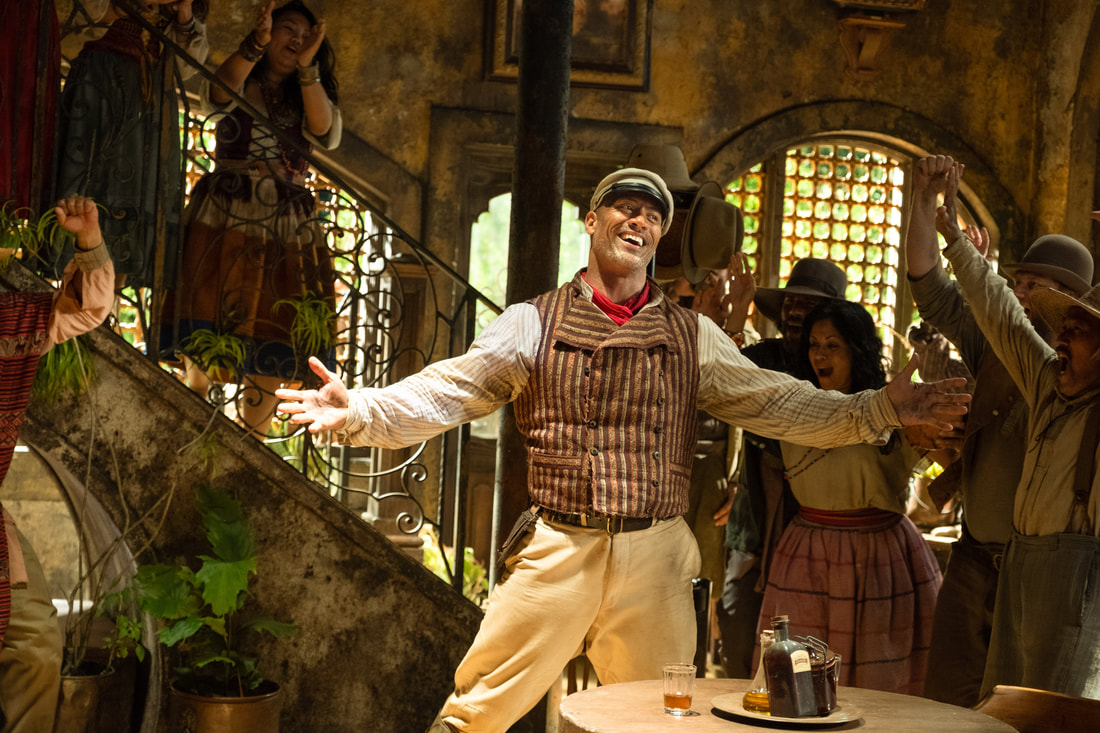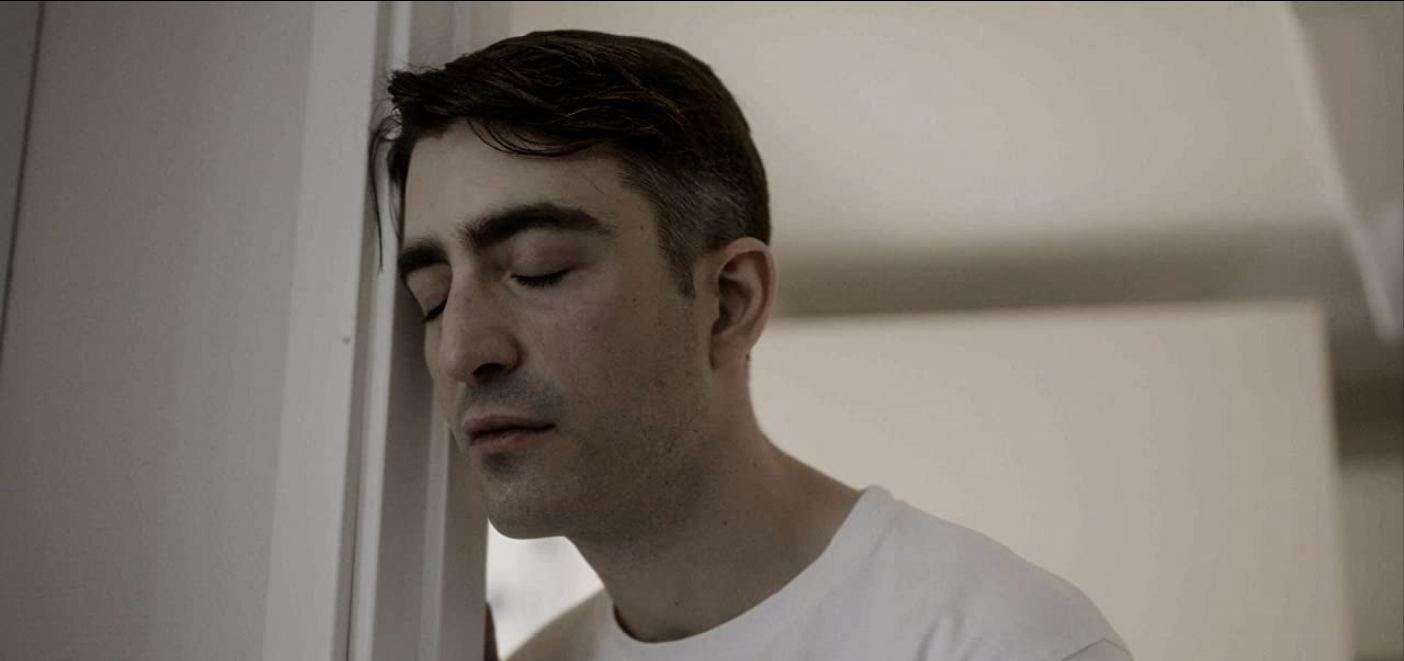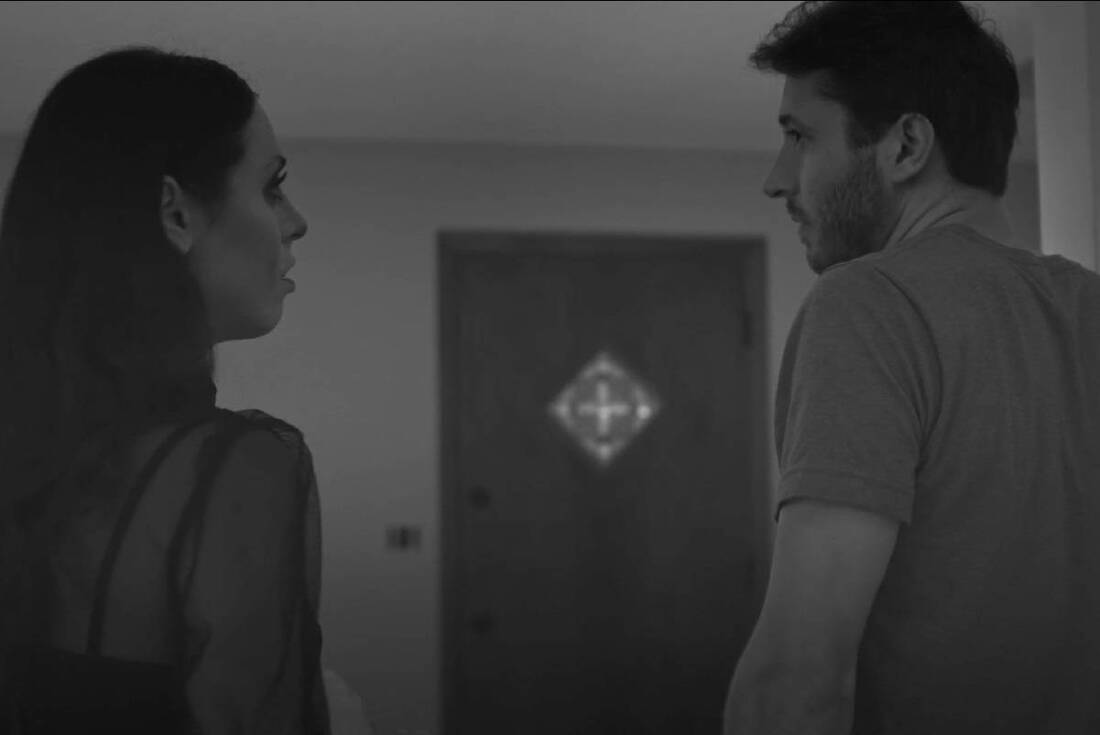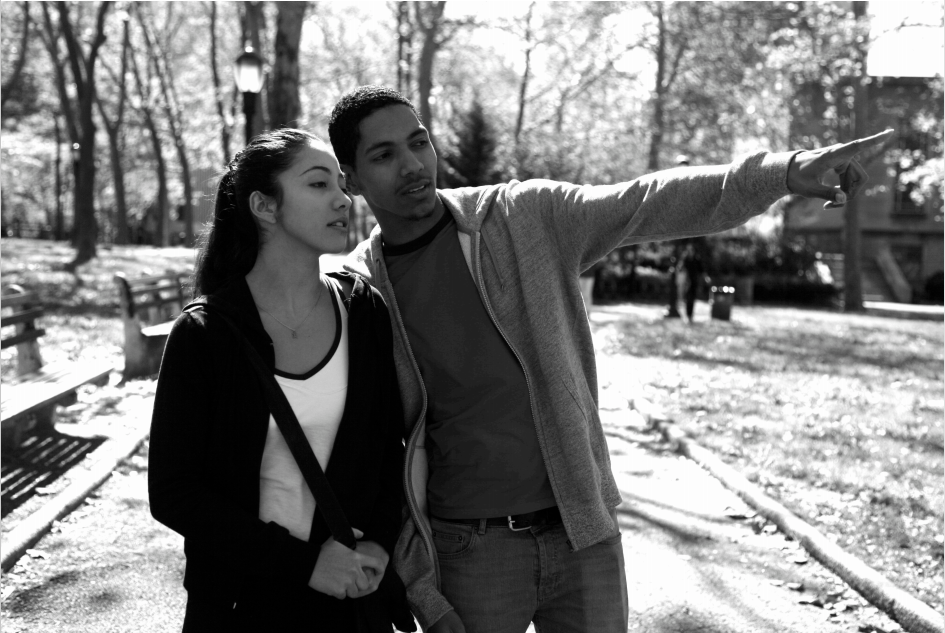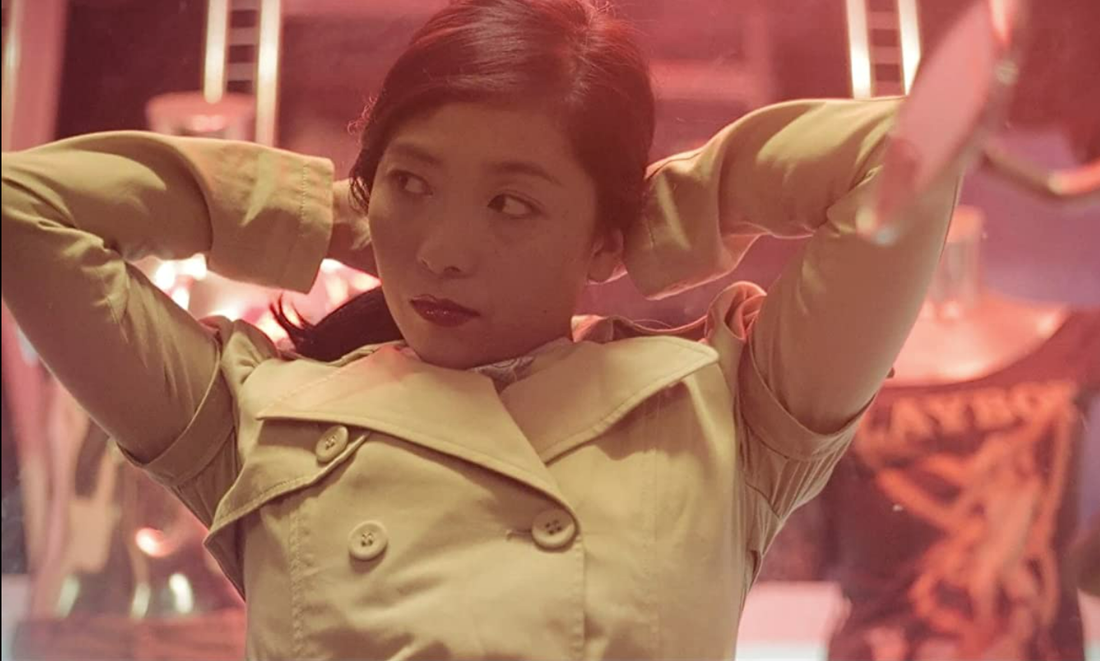|
Originally published on Elements of Madness. You don’t necessarily need complex characters or ingenious plot twists to write an engaging story. With strong imagery and a clear, palpable tone that physically affects your audience, you can transform the most overdone plot into a memorable tale. Writer/director Edoardo Vitaletti demonstrates that kind of storytelling craftsmanship in his feature debut, The Last Thing Mary Saw, which premiered at the 2021 Fantasia International Film Festival. Every aspect of this suffocatingly dark period drama, including its characters and plot, takes a backseat to its tone and mood. As a result, The Last Thing Mary Saw is bursting with palpable dread that will chill you to the bone.
0 Comments
Originally published on Elements of Madness. When you’re a teenager, every little upset feels like the end of the world. Failing a test, losing the big game, watching your crush take someone else to prom, or even finding out that your favorite band broke up can send you to bed in tears. In fact, in 1987, one teen was so moved by the music of The Smiths that, after the band broke up, he plotted to break into a local radio station and force the DJ to play nothing but Smiths tracks at gunpoint. In real life, the young man turned himself in before going through with his plan. But in Shoplifters of the World, a cinematic tribute to The Smiths, writer/ director Stephen Kijak imagines a different outcome to the story. Although The Smiths may be long broken up, you can relive the mood and culture they inspired with a DVD or Blu-ray copy of Shoplifters of the World from RLJE Films.
If you’ve ever stood in an hour-long line just to take your kids on a 10-minute amusement park ride, you’re probably wondering how anyone could transform the brief thrills of that attraction into an engaging feature-length movie. But, in 2003, Disney did it as only Disney can, releasing the first of five Pirates of the Caribbean movies that, together, would bring in billions at the box office. Disney has taken another stab at theme park-inspired films with Jungle Cruise, which is based on the Disneyland attraction of the same name. The ride itself was inspired by Disney’s “True Life Adventure” documentaries and has been around since the park opened in 1955. Decades later, Disney now gives the “jungle cruise” concept a new twist under the direction of Jaume Collet-Serra (The Shallows, 2016; Run All Night 2015).
Before she was saving the world with Iron Man, Thor, The Hulk, and Captain America, founding Avenger and kick-ass spy Black Widow (aka Natasha Romanoff) was…well, what was she doing? It’s a question that Marvel Cinematic Universe (MCU) fans have been asking since Black Widow made her franchise debut in Iron Man 2 (2010). Her past was shrouded in mystery, making her the ideal character for a solo spin off movie, and Scarlett Johansson brought such strength and emotional depth to the character that we couldn’t help but ask for more. A Black Widow movie couldn’t just be an exposition on the character’s past. It needed to give her the chance to stand in the spotlight and get some much-deserved screen time. It needed to be unique, action-packed, and emotionally satisfying. It needed to add meaning to the character and allow fans to appreciate Black Widow’s role in other MCU movies even more. As fans waited years for such a movie, these expectations only grew. After one extra year of waiting due to the pandemic, MCU fans will finally get what they’ve been waiting for on July 9, 2021. The question is, does Black Widow live up to years of fan expectations?
One of the most difficult parts of living alone is the silence. If it weren’t for FaceTime lunches with friends, work calls, and daily conversations with my cat, there might be days where I didn’t even hear the sound of my own voice. When my TV is off, my phone stops buzzing and there’s no sounds coming from outside, there’s this brief terrifying moment where I wonder if everyone else on Earth has disappeared. Even if I break the silence by talking to myself, it feels like I’m just sending my voice out into an empty void where no one will ever hear it. Writer/ director Jimmy Olsson captures this kind of loneliness in his short film, Notes, in which he offers a hopeful answer to the question that appears on the poster, “how can you speak when you have no one to talk to?” In Notes, a man moves into a temporary apartment after his bathroom floods, where he proceeds to work on a song he’s composing for his girlfriend’s birthday. He’s a little rusty on the keyboard and can’t quite find the right notes, but his neighbor chimes in through the wall to help him out.
Let the spectral agents in: Bring home independent gem “A Ghost Waits” on Blu-ray from Arrow Video.6/21/2021 Originally published on Elements of Madness. With limited resources at hand, the incredible cast and crew of A Ghost Waits truly came through with teamwork and creativity. Making the most of what they had and pooling resources from family and friends, the team shot the movie in Cincinnati, Ohio, in 2016. After its first public screening at Fright Fest Glasgow in March 2020, the movie underwent a few more tweaks and changes before it was released for streaming on Arrow in February 2021. The final version of this quirky horror/romcom is a testament to the crew’s perseverance and collaborative efforts, showcasing their enormous love for filmmaking. In the words of director and co-writer Adam Stovall, the movie isn’t perfect, but it’s “the best version of itself” possible. You can now get the full scoop on the story behind the film from the interviews and commentaries included on the Blu-ray from Arrow Video, which makes the perfect gem to add to your home collection.
Originally posted on Elements of Madness. Storytelling is essential. It’s one of the easiest ways to communicate our values, express our beliefs, and process our experiences. Even our 280-character tweets are a form of storytelling, and many of us couldn’t make it a single day without a little micro-storytelling on social media. While it’s natural for us to jump into a detailed account of our own experiences, it’s not as natural to stop and listen to a different perspective. Movies and TV shows can give us the opportunity to explore other perspectives by replaying the same event from different points of view, the results of which can be comedic, horrific, or totally mind-blowing. In the case of The Get Together, we get to experience a Friday night party from the perspective of four very different twenty-somethings: an outcast who wasn’t really invited, a nervous guy trying to plan the perfect proposal, a career-driven student who returns to her hometown for the first time in months, and a wannabe musician who’s wondering if his dreams might be too big.
Director Paul Starkman showcases his mastery of filmmaking in his feature debut, “Wheels.”5/23/2021 Originally published on Elements of Madness. Wheels starts with its greatest strength: music. A lively rock-n-roll tune plays over a black screen as a few opening credits fly by, and we hear the protagonist, Max (Arnstar), introduce himself while doing what he loves most: DJing. But when the music comes to a halt, we see that Max isn’t DJing at a club or fancy event, but at a children’s birthday party. The film’s memorable introduction is just a small sample of the masterful cinematic storytelling that writer/director Paul Starkman offers in his feature debut, a well-crafted coming-of-age-film that brings together the Emmy-nominated director’s love of hip hop and his fondness for his hometown, Brooklyn. Wheels premiered at the 2018 Woodstock Film Festival, where it took home the Audience award and the Best Narrative Feature award. After a successful festival run, the film was released to general audiences in September 2020.
Ran Slavin’s feature debut, “Call for Dreams,” is “A Page of Madness” for the 21st century.5/16/2021 Originally published on Elements of Madness. According to the press notes for Call for Dreams, Israeli director Ran Slavin started the project in pursuit of a “new cinematic form.” Slavin began with the idea to collect dreams from strangers that he could use as inspiration for his film and he ended up incorporating this idea into the plot of the film itself. Call for Dreams revolves around a young woman named Eko (Mami Shimazaki) who posts a “Call for Dreams” advertisement in a Tokyo newspaper. Strangers can describe their dreams to Eko by leaving a message on her answering machine, and if she approves of the dream, she’ll visit the customer and act out their dream for a fee. Meanwhile, an investigator in Tel Aviv (Yehezkel Lazarov) listens to old tapes on Eko’s machine as he investigates a murder. The two stories overlap in abstract ways that blur the lines between dreams, memories, and reality. Although the film flew under the radar for its international streaming release in late 2020, Call for Dreams is an intriguing film that deserves praise and critical attention.
It’s strange to think that children born within the last eight years or so will develop their first memories in a world where social distancing and mask wearing are the norm. While most of us have made significant lifestyle adjustments during the pandemic, this group of children has never known anything different. We certainly hope things will have gone back to “normal” by the time this generation comes of age, but there’s no doubt that COVID-19 will have many lasting effects on the world. In the short film “6,480 Days,” writer/director Ran Slavin imagines a future in which the lockdown never ended, and the virus is still a very real threat. The narrator, a young man born sometime after the initial outbreak, reflects on the pre-pandemic world he never knew. But like any good post-apocalyptic vision, “6,480 Days” has a lot more to say about our current fears and attitudes than those of future generations.
|
"Our embodied spectator, possibly perverse in her fantasies and diverse in her experience, possesses agency...finally, she must now be held accountable for it." Categories
All
|

